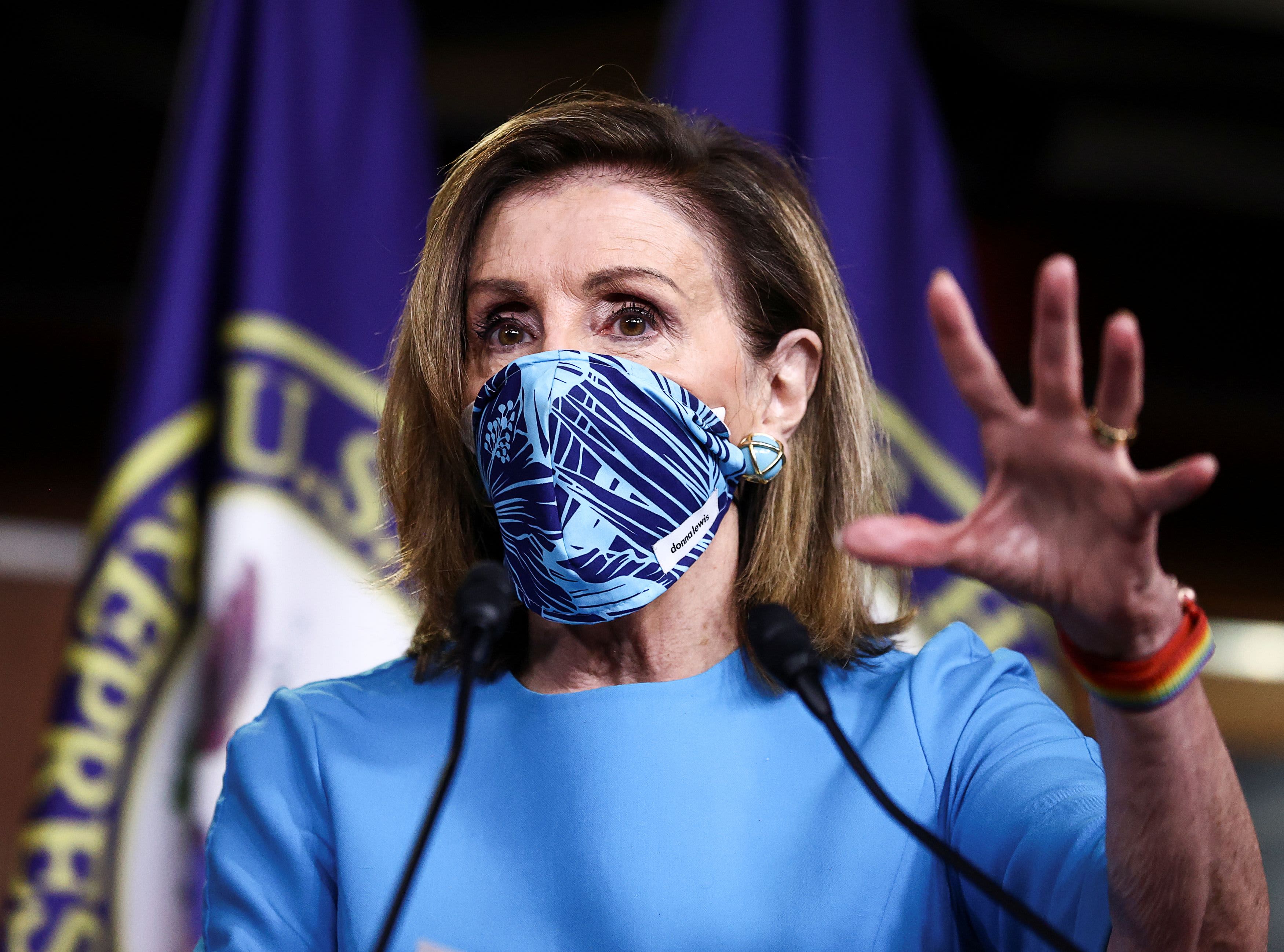GOP blocks House Democrats' attempt to pass $2,000 stimulus checks

House Republicans on Thursday blocked a Democratic attempt to pass $2,000 direct payments to Americans, as the fate of the massive coronavirus relief package passed by Congress earlier in the week hangs in the balance.
The Democrats moved to increase the size of the checks after President Donald Trump threatened to oppose the $2 trillion pandemic aid and federal funding bill because it included only $600 in direct payments rather than $2,000.
Congress passed the proposal Monday after Trump took no role in weeks of talks. The plan included $900 billion in coronavirus relief.
Trying to cap the plan's cost, most of Trump's Republican Party sought $600 in direct payments rather than the $1,200 passed in the CARES Act in March. In criticizing the year-end legislation, Trump also pointed to foreign aid spending — which Washington includes in funding bills every year.
The House tried to pass the $2,000 payments during a pro forma session on Christmas Eve day, a brief meeting of the chamber where typically only a few members attend. Democrats aimed to approve the measure by unanimous consent, which means any one lawmaker can block it.
Rep. Steny Hoyer, D-Md., offered the proposal from the House floor, but was blocked because the measure was not approved by House Minority Leader Rep. Kevin McCarthy, R-Calif.
Subsequently, Rep. Rob Wittman, R-Va., attempted to get lawmakers to reconsider aspects of the spending bill related to foreign aid. That move was blocked by Democrats.
House Speaker Nancy Pelosi said in a statement after her party's measure failed that she would hold a full recorded vote on the proposal for $2,000 payments on Monday.
"If the President is serious about the $2,000 direct payments, he must call on House Republicans to end their obstruction," Pelosi said.
Democrats have called on Trump to sign the coronavirus relief and government funding bill into law and to support the separate cash payment plan.
Senate Majority Leader Mitch McConnell and McCarthy, the top two Republicans in Congress, and their aides have been silent on Trump's demand for bigger checks.
But McCarthy, in a letter late Wednesday to Republicans, described a countermove his party planned to make on Thursday that would seek changes to the foreign aid component of the spending bill.
It is unclear who would be eligible for $2,000 payments in the Democrats' plan. In the aid and government funding bill, individuals who earn up to $75,000 and couples filing jointly who make up to $150,000 would receive the full $600. In addition, the measure would pay $600 for each dependent child. Trump did not address the payments to children.
If Trump vetoes the legislation, Congress may have enough support to override his action. However, depending on how quickly the more than 5,000-page bill gets to his desk after formal enrollment, he could let it die by refusing to sign it before the new session of Congress starts at noon ET on Jan. 3.
Along with the direct payments, the rescue package would add a $300 per week federal unemployment supplement, extends jobless benefit expansion provisions and a federal eviction moratorium, direct $284 billion to Paycheck Protection Program loans and put more than $8 billion into Covid-19 vaccine distribution, among other provisions. If Trump does not sign the legislation in the coming days, about 12 million people would lose unemployment benefits on Saturday — the day after Christmas — and the government would shut down on Tuesday.
Many economists and Democrats have called the $900 billion relief plan inadequate after months of stalemate on Capitol Hill.
Democrats have said they plan to push for another relief bill after President-elect Joe Biden takes office Jan. 20. Biden has said he will present his own plan to lawmakers early next year and that he would push for a third round of direct payments.
Democrats have cited more direct payments and state and local government aid as their top priorities.
The White House did not immediately return a request for comment on Thursday.
—Reuters contributed to this report.
Subscribe to CNBC on YouTube.
Source
Check Our More
No comments